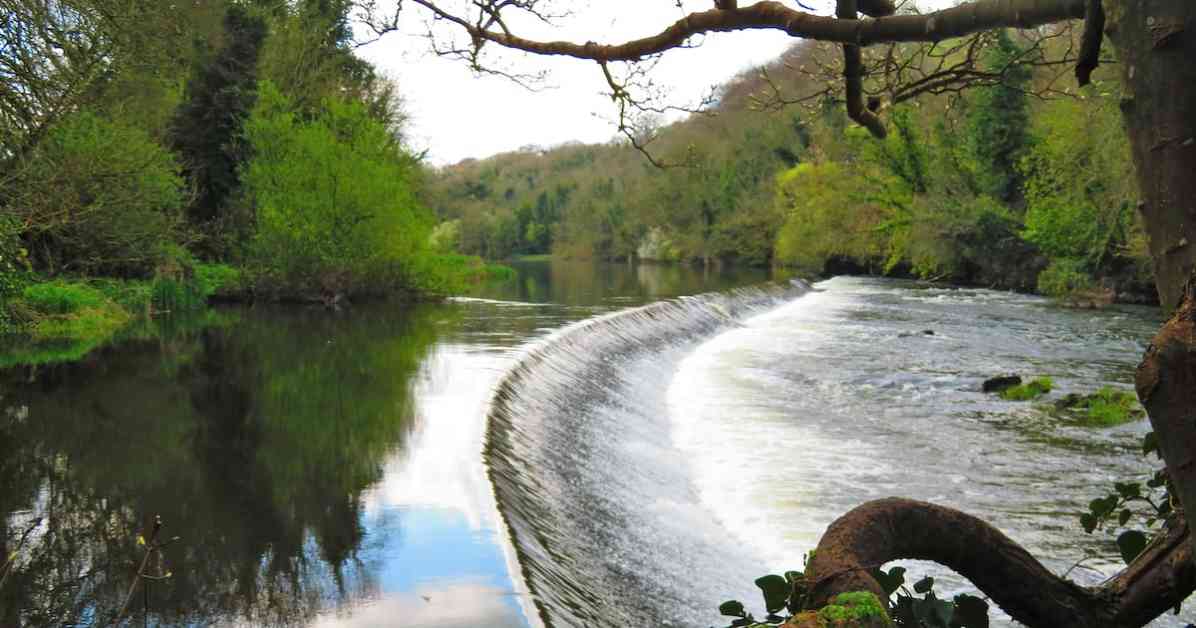In September 2022, the Save the Boyne campaign received a significant boost from none other than Pierce Brosnan, the Navan-born actor known for his portrayal of the iconic James Bond. As a high-profile advocate, Brosnan’s support added a touch of Hollywood glamour to the local cause, rallying even more supporters to oppose Dawn Meats’ proposal to discharge treated wastewater from their Slane abattoir into the Boyne.
The saga began in March 2021 when Dawn Meats received approval to expand their beef abattoir operations in Beauparc, a mere few kilometers from Slane. The proposed plan included the construction of a pipeline to release 400,000 liters of treated abattoir wastewater into the Boyne daily, sparking concerns among locals and environmental groups.
Effluent from abattoirs contains a mix of water, blood, fats, oils, and proteins, creating a nutrient-rich wastewater that poses environmental risks if not properly treated. Dawn Meats aimed to build an on-site treatment plant at the Slane abattoir to manage the effluent before discharging it into the Boyne through a 7km pipeline. While the company argued that this move would reduce truck traffic and have no adverse effects, Save the Boyne and other concerned parties disagreed.
In a recent turn of events, An Bord Pleanála rejected the application, citing insufficient evidence to support the claim that the wastewater would not harm the water quality of the Boyne. This decision marked a victory for the Save the Boyne campaign and a setback for Dawn Meats, prompting reflections on the challenges of balancing industrial needs with environmental protection.
### Local Opposition and Environmental Concerns
The Save the Boyne campaign emerged as a grassroots movement, driven by the efforts of concerned locals who banded together to protect the river and its surrounding habitats. Their objections, supported by hundreds of individuals and organizations, highlighted the importance of safeguarding the Boyne, a vital water source for numerous homes in the region.
The potential impact of the treated effluent on the river’s ecosystem raised red flags, prompting fisheries scientists to express concerns about rising water temperatures and declining habitat suitability for aquatic species. While rivers possess a natural capacity to process some level of wastewater, experts like Dr. Ken Whelan emphasize the need to consider climate change impacts and adopt forward-thinking strategies for environmental management.
### The Need for Sustainable Planning and Collaboration
The prolonged process of evaluating Dawn Meats’ proposal underscored the challenges of balancing economic interests with environmental sustainability. The intricate web of planning applications, ecological reports, and regulatory assessments revealed a need for more efficient, transparent, and community-centered decision-making processes.
An Bord Pleanála’s recent decision serves as a reminder that environmental concerns must not be overlooked in the pursuit of industrial growth. The Boyne River’s status as one of the EPA’s “most-at-risk” catchments underscores the urgency of implementing comprehensive restoration efforts to preserve this vital natural resource for future generations.
As the Save the Boyne campaign celebrates a hard-fought victory, the broader conversation around environmental stewardship and sustainable development continues. By engaging in collaborative dialogue, leveraging expert insights, and prioritizing long-term environmental health, stakeholders can work towards a more harmonious relationship between industry and nature, ensuring a brighter future for rivers like the Boyne and the communities they sustain.












